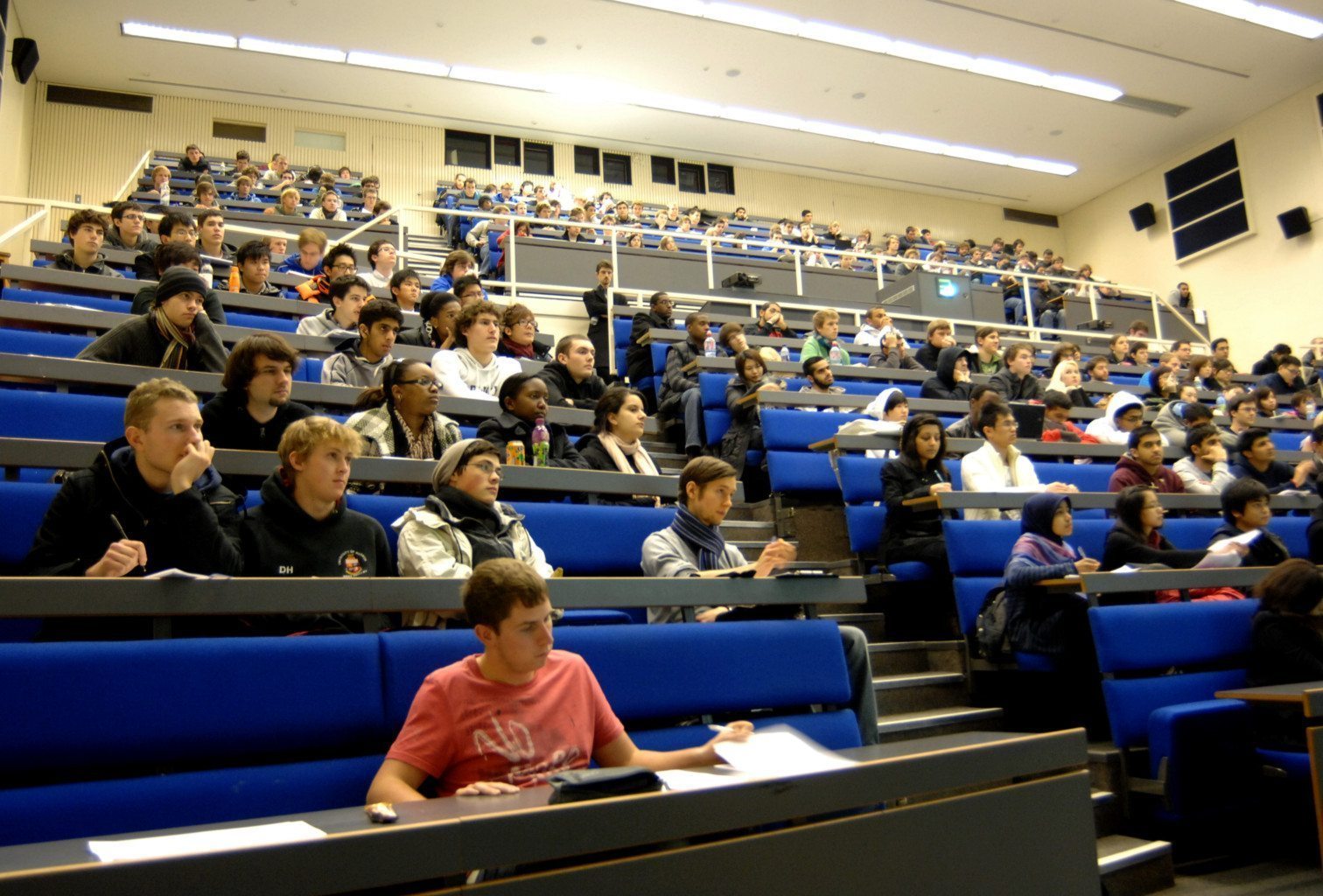Students unable to sit down in lectures
Following reports of students unable to sit down in lectures, numerous Warwick heads-of-departments (HoDs) told the Boar last week about their difficulties with timetabling.
Some complained that the University does not have enough large lecture theatres, while others explained that they are forced to make estimations about module popularity and later face problems of overcrowding.
Most HoDs agreed that the current timetabling system is problematic.
The Maths HoD, Professor Colin Sparrow, explained the need to “accommodate two or three hundred people” for core modules and cited “the availability of rooms that are large enough” as “the major constraint”.
Physics academic Dr Mark Hadley admitted that he is often forced to choose between “a good timetable slot in a room that is technically too small” and a move “to an unpopular slot in a larger room.”
He compared this to other universities, where he believes that “room utilisation is better and lecture clashes are systematic.”
Kelly Parkes-Harrison, the senior press and communications manager for the University explained that the administration is “currently actively reviewing the teaching timetable”.
She specifically mentioned “short term investment” in “a number of teaching spaces across the campus” and also the long-term “design and construction of a new £15m building on Tocil field.”
The HoDs responses revealed that timetabling problems can also be caused by the underestimation of student turn-out to lectures.
Departments have been forced to guess the popularity of a module based on previous experience.
Many HoDs such as those of Psychology and Life Sciences admitted that this has caused problems in the past when more students enrolled than expected.
First year PPE student Daniel Parker confirmed this. He said: “Lecture rooms were so full [at the start of the year] that the department had to run two lectures on the same day to accommodate all of the students”.
Some departments also assume that a percentage of students will not attend lectures, and this is reflected in room allocation.
Dr Hadley admitted that: “We are always aware that if 100 students are registered on a module then a lecture room of 95 will always be big enough. And with room to spare if it is a 9am slot!”
However, HoDs such as those of Statistics and History were adamant that all students registered for a module should be able to attend their lectures.
The head of Statistics, Professor David Firth commented “it’s important to us [and to our students, we believe].”
Departments such as Economics, Law, and Film and Television studies also explained that they do not use probability-based allocation for timetables.
“In Law, we book for numbers subscribed for a course and then add some for external students” claimed Professor Alan Norrie, HoD for Law.
Despite this, a first-year Law and Sociology student explained that for her legal theory module there is “not enough space, have to get there early just to get a space otherwise you’re sitting on the floor, you’re standing.”
The department of Physics explained their advanced probability-based-allocation system, and representatives from Maths and Engineering admitted that they saw the benefits of such a scheme.
Professor Ball, the HoD for physics explained that students are permitted to register for many modules at first, and later “de-register when their preferences have crystallised”. He claimed that students “appreciate this”.
Maths and Physics masters student Luke Smith agreed: “it gives you the chance to have an experience in a module and choose whether you still want to go ahead with it or not.”
Third-year Engineering student Eduardo Giardino commented: “Since Italian Universities are state run, the problem of overcrowding in lectures is even worse. We’re lucky that it’s not that bad at Warwick.”

Comments